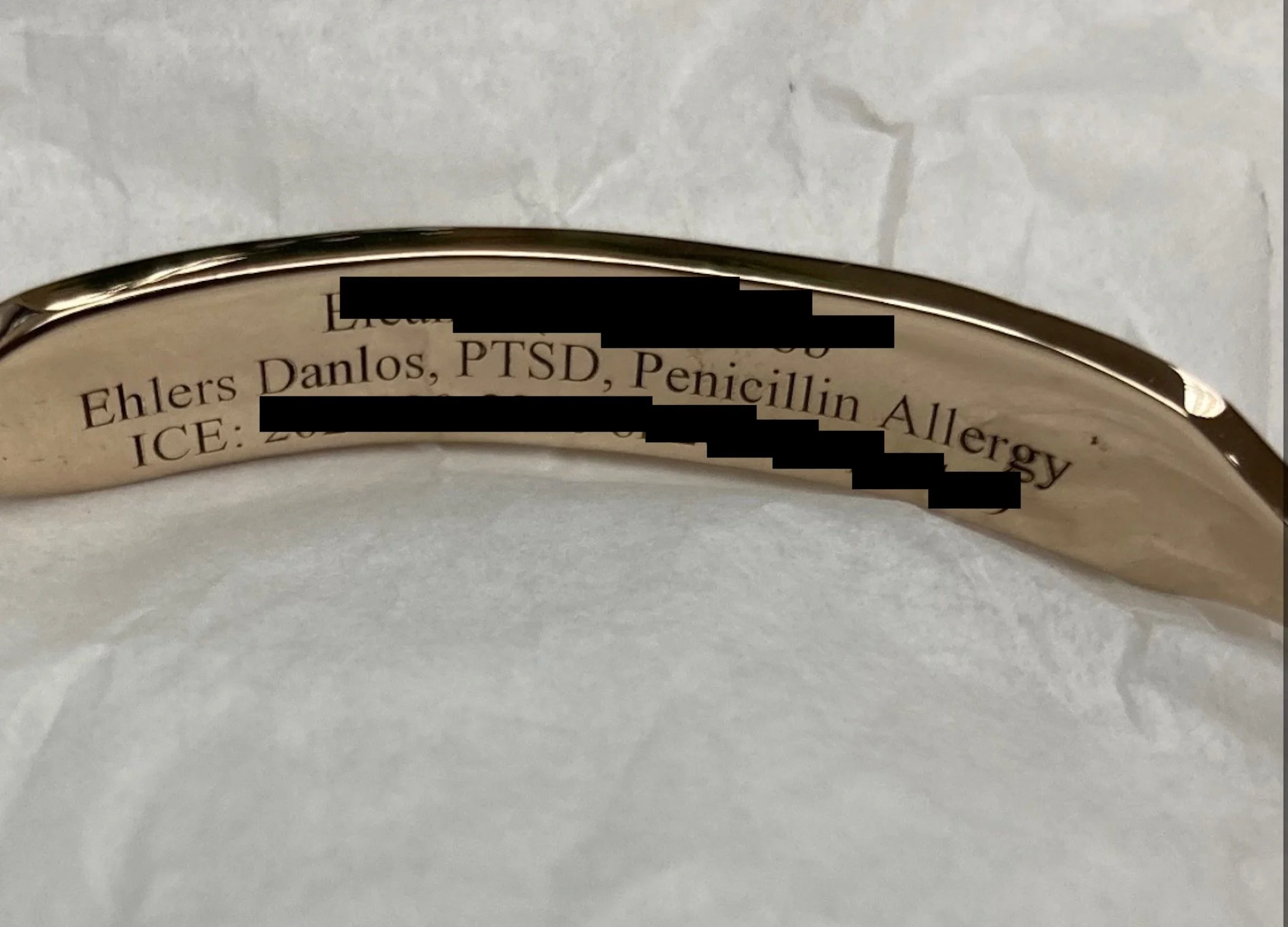PTSD Bracelets
PTSD, or post-traumatic stress disorder, is a mental health condition that can occur after a person experiences or witnesses a traumatic event. It is a serious condition that can have a significant impact on a person's daily life, but it is treatable with proper care and support. In this article, we will explore the symptoms of PTSD, available treatments, and why it is important to wear a medical ID bracelet if you have PTSD.
Why It Is Crucial To Wear A Medical ID Bracelet If You Have PTSD
A medical ID bracelet is a simple yet crucial piece of jewelry that can alert emergency responders to a person's medical condition in the event of an emergency. This can be especially important for individuals with PTSD, as they may experience symptoms that can be mistaken for other conditions, such as a heart attack or seizure. In addition, individuals with PTSD may be taking medications that could interact with other medications or treatments that emergency responders may provide.
Wearing a medical ID bracelet can ensure that emergency responders are aware of an individual's PTSD diagnosis and any relevant medical information. This can help to ensure that the individual receives appropriate and timely care in an emergency situation.
In addition to providing important medical information to emergency responders, a medical ID bracelet can also serve as a reminder to the individual with PTSD to take their medications or practice self-care techniques. This can be especially important in high-stress situations where a person may forget or neglect these important aspects of their treatment plan.
Symptoms of PTSD
The symptoms of PTSD can be varied and can manifest in different ways. Some of the most common symptoms include:
Intrusive thoughts or memories of the traumatic event
Avoidance of triggers related to the traumatic event
Negative changes in mood or thought patterns
Hyperarousal or feeling on edge
Nightmares or flashbacks
Difficulty sleeping or concentrating
These symptoms can be severe and can interfere with a person's ability to function normally in daily life. It is important to seek professional help if you are experiencing any of these symptoms.
Treatments For PTSD
There are several treatments available for PTSD, including therapy, medication, and self-help techniques. Some of the most common treatments include:
Cognitive behavioral therapy (CBT): This therapy can help individuals to identify and change negative thought patterns that may be contributing to their symptoms.
Eye movement desensitization and reprocessing (EMDR): This therapy uses eye movements to help individuals process traumatic memories and reduce the intensity of their emotional response to these memories.
Medications: Antidepressants and anti-anxiety medications may be prescribed to help manage symptoms of PTSD.
Self-help techniques: These can include things like exercise, mindfulness, and relaxation techniques to help manage stress and anxiety.
It is important to work with a healthcare professional to determine the best treatment plan for your individual needs.
PTSD is a serious condition that can have a significant impact on a person's daily life. However, with proper care and support, it is treatable. If you are experiencing symptoms of PTSD, it is important to seek professional help. Additionally, if you have been diagnosed with PTSD, it is crucial to wear a medical ID bracelet to ensure that emergency responders are aware of your medical condition and any relevant medical information. This can help to ensure that you receive appropriate and timely care in the event of an emergency.
PTSD Online Resources
National Center for PTSD: The National Center for PTSD is a U.S. government agency that provides comprehensive information on PTSD, including resources for veterans, healthcare professionals, and the general public. They offer educational materials, research updates, and self-help tools.
Sidran Institute: The Sidran Institute is a nonprofit organization that focuses on trauma education and advocacy. They offer resources for trauma survivors, including those with PTSD, as well as resources for families, therapists, and caregivers.
Anxiety and Depression Association of America (ADAA): ADAA provides information and resources related to anxiety and depression disorders, including PTSD. They offer articles, webinars, and support for individuals seeking information about PTSD and related conditions.
PTSD United: PTSD United is an organization dedicated to providing support and resources for individuals with PTSD. They offer online resources, stories from survivors, and information about coping strategies.
National Alliance on Mental Illness (NAMI): While not exclusively focused on PTSD, NAMI is a major mental health organization that provides resources and support for various mental health conditions, including PTSD. They offer educational materials, helplines, and local support groups.
Gift From Within: Gift From Within is a nonprofit organization that provides resources and support for survivors of trauma and those with PTSD. They offer articles, personal stories, and educational materials to promote healing and recovery.
International Society for Traumatic Stress Studies (ISTSS): ISTSS is a professional organization that focuses on the study and treatment of traumatic stress. While it's geared more towards professionals, their website offers resources and information about traumatic stress and PTSD.
